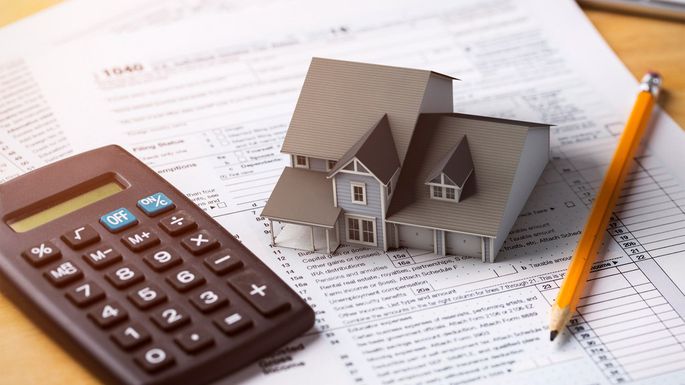-1.jpg?width=5363&height=3575&name=female-hand-operating-calculator-front-villa-house-model%20(1)-1.jpg)
Navigating the property tax system in New Zealand can be complex, but with the right knowledge and strategy, you can ensure you are claiming what you are entitled to. Learn about when and how to claim property tax in New Zealand to maximize your benefits.
Understanding Property Tax in New Zealand
Property tax in New Zealand is a tax imposed on the value of property. It is calculated based on the rateable value of the property, which is determined by the local council. The purpose of property tax is to fund local government services, such as infrastructure, education, and healthcare.
Property owners are responsible for paying property tax on an annual basis. The tax amount is calculated by applying the property tax rate to the rateable value of the property. It is important to understand the property tax system in New Zealand to ensure compliance and maximize your benefits.
To determine the rateable value of your property, you can check the valuation roll maintained by your local council. This valuation roll provides information about the value of each property in the area.
It is worth noting that property tax rates may vary between different regions in New Zealand. These rates are set by the local council and can change from year to year. It is advisable to check with your local council or seek professional advice to stay updated on the current property tax rates in your area.
When to Claim Property Tax
Property tax in New Zealand is typically claimed and paid annually. The tax year in New Zealand runs from 1 April to 31 March. Property owners are required to file their property tax returns by 7 July following the end of the tax year.
It is important to note that property tax is based on the ownership of the property as at 1 April each year. If you purchase or sell a property during the tax year, you may be required to apportion the property tax with the other party involved in the transaction.
Additionally, if you are renting out a property, you may be eligible to claim expenses related to the property against your rental income. These expenses can include property management fees, repairs and maintenance costs, insurance premiums, and interest on loans used to purchase or improve the property.
To ensure you claim property tax at the right time, it is recommended to keep accurate records of property ownership and any income and expenses related to the property. This will help you accurately calculate your property tax liability and claim any deductions you are entitled to.
How to Claim Property Tax
To claim property tax in New Zealand, you need to file a property tax return with the Inland Revenue Department (IRD). The property tax return should include details of your property, such as the rateable value, and any income and expenses associated with the property.
When filing your property tax return, you may need to provide supporting documentation, such as invoices, receipts, and bank statements, to substantiate your claims. It is important to keep accurate records of your property-related transactions and expenses to ensure compliance with the tax regulations.
If you are unsure about how to fill out your property tax return or have any questions regarding the claiming process, it is recommended to seek professional advice from an accountant or tax advisor. They can guide you through the process and ensure you claim all eligible deductions while complying with the tax laws.
What You Can Claim
As a property owner in New Zealand, you can claim certain expenses as deductions against your property tax. These deductions can help reduce your overall tax liability and maximize your benefits. Some common expenses that can be claimed include:
- Interest on home loans: You can claim the interest paid on loans used to purchase or improve your property.
- Rates and insurance: You can claim the cost of rates and insurance premiums for your property.
- Repairs and maintenance: You can claim expenses incurred for repairing and maintaining your property.
- Property management fees: If you engage a property manager to handle the rental of your property, you can claim their fees as an expense.
- Legal and accounting fees: You can claim fees paid to professionals for services related to your property, such as legal advice and accounting services.
It is important to keep accurate records of these expenses and ensure they are directly related to the property you are claiming deductions for. Keeping proper documentation will help support your claims and ensure compliance with the tax regulations.
Home Loan Interest Deduction Rule
One of the significant deductions available to property owners in New Zealand is the home loan interest deduction. This deduction allows you to claim the interest paid on loans used to purchase or improve your property.
To be eligible for the home loan interest deduction, the loan must be used solely for the purpose of purchasing or improving the property. If the loan is used for other purposes, such as personal expenses or investments unrelated to the property, the interest on that portion of the loan may not be deductible.
It is important to keep proper records of the loan amount, interest paid, and the purpose of the loan to ensure compliance with the home loan interest deduction rule. If you have multiple loans or use a loan for both personal and property-related purposes, it is recommended to seek professional advice to determine the portion of interest that can be claimed as a deduction.
Claiming the home loan interest deduction can help reduce your overall tax liability and increase your tax savings. It is advisable to consult with an accountant or tax advisor to ensure you are correctly claiming this deduction while complying with the tax laws.




